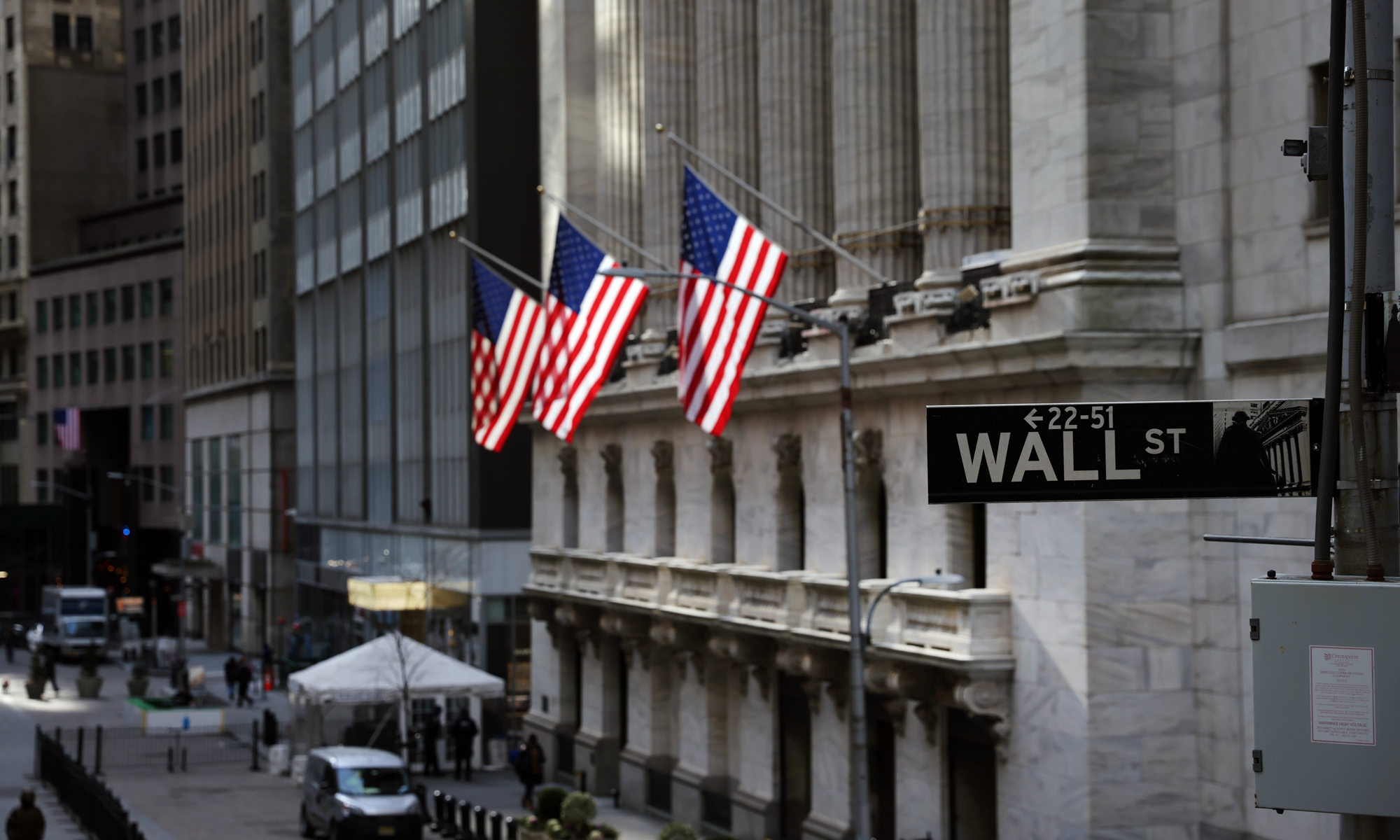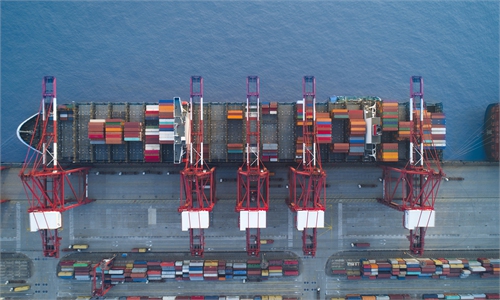BlackRock, other US firms' success in Chinese market overshadows China bashers like Soros
Growing businesses overshadow slander

Wall Street Photo: AFP
Even as some China bashers like George Soros stepped up criticism against China's recent regulatory actions in certain sectors, many US businesses are actually expanding in the Chinese market and seeing initial successes, with the latest example being US asset manger BlackRock's first mutual fund in the Chinese market.
The BlackRock China New Horizon Mixed Securities Investment Fund, the first wholly foreign-owned mutual fund in China, was launched on Tuesday and its net subscriptions stood at 6.68 billion yuan ($1.03 billion) by Wednesday. The marketing period was shortened to five days from the originally planned 10 days, which was due to close on Friday.
BlackRock's massive initial success in the Chinese market dealt a direct rejection to criticism from Soros. In an article published by The Wall Street Journal on Monday, Soros described BlackRock's initiative in China as a "tragic mistake" that would "damage the national security interests of the US and other democracies."
Soros is among a group of notorious China bashers, who constantly misread the Chinese market but never stop their attack on China's economy. As China tightened regulations in the internet, afterschool training and other sectors, they have returned to slander China's actions.
However, their negative spins have been overshadowed by expansion of many US businesses in the Chinese market. For example, apart from BlackRock, US financial services firm Fidelity was also approved to establish a fund management company in China with registered capital of $30 million by China's securities regulator in August, with the business scope involving public offerings of securities investment fund management, fund sales, and private asset management.
Also, the Beijing Universal Studios Resort is set to open later this month with great fanfare despite the COVID-19 pandemic that continues to threaten businesses in the US and elsewhere. Other US companies like GE are also increasing their investment in China.
BlackRock's aggressive entry into China is both smart and symbolic, and it is also a slap in the face to anti-China Western politicians and investors like Soros, a former senior executive of an investment bank, who asked to remain anonymous, told the Global Times on Thursday.
"Investment is investment. As long as operations are within the legal scope, investment should flow to the market that has the highest return, which is the nature of capital. The rise of China has exposed the hypocrisy of the idea 'capital knows no borders' that the West has been peddling and propagating," said the executive.
Soros' criticism of the Chinese market was also pushed back by other influential US investors, who hold more positive views on the Chinese market.
Bridgewater Associates founder Ray Dalio said on Wednesday that China can't be neglected "not only because of the opportunities it provides, but you lose the excitement if you're not there."
"Much is changing in China, and the cost of ignoring this emerging opportunity might prove too high, especially over the longer term," said BlackRock on its website.
The latest developments also showed the downfall of these anti-China forces, which used to be influential but are losing credibility when it comes to the Chinese market, analysts said.
"Soros is the naked expression of US hegemony. He was rich and used to wield great influence… but let him watch his dollar assets fall in value. Let him watch China's A-share companies grow at a higher rate and generate returns. He is already too old," said the former executive, adding that Soros' investment history will draw to a shameful end.
An independent investor surnamed Cheng told the Global Times on Thursday that Soros thinks he can manipulate global financial markets because he was rich, but that does not work in the Chinese market. "China has a bright future. No investors can suffer the pain of missing the market," said Cheng.
China is second-largest economy in the world, and had the largest equity and bond markets globally as of 2020, per the World Federation of Exchanges. However, only 3 percent of China's assets are owned by foreign investors, according to statistics from China's central bank.
Foreign investment continued to flow into the Chinese market. Foreign direct investment in the Chinese mainland surged 28.7 percent year-on-year to 607.84 billion yuan ($90.96 billion) in the first half of this year, data from the Ministry of Commerce showed. The value was up 27.1 percent from the same period in 2019.


